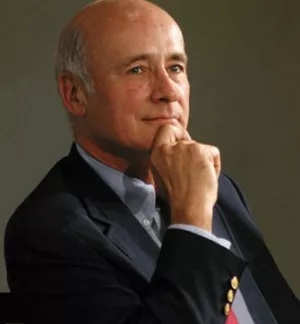The mid-term elections in the United States earlier this week were the sharpest popular rebuke that President George W. Bush has yet suffered at home. With Congress lost to the Democrats and exit polls showing six in 10 voters opposed to the Iraq war, Bush finally fired Donald Rumsfeld, his disastrous secretary of defense. But while Americans gave the Bush administration low marks on the war in Iraq, polls show that they still support him on the struggle against terrorism.
Unfortunately, America is not winning the "war on terrorism." An official National Intelligence Estimate confirmed that more jihadist terrorists are being recruited than the US is killing. Bush is correct to say that Al-Qaeda has been disrupted, but its attraction as a movement has been enhanced. The cancer has metastasized.
Bush is also right to say that this will be a long struggle. Most outbreaks of transnational terrorism in the past took a generation to burn out. But America won the long Cold War by a smart combination of hard coercive power and attractive ideas. When the Berlin Wall collapsed, it was not destroyed by an artillery barrage, but by hammers and bulldozers wielded by those who had lost faith in communism.
There is little likelihood that people like Osama bin Laden can ever be attracted: Only force can deal with such cases. But the people the extremists recruit can be brought to choose moderation over extremism. The Bush administration is beginning to understand this proposition, but it does not seem to know how to implement such a strategy.
In the information age, success depends not only on whose army wins, but also on whose story wins. The struggle against jihadists is not a clash of civilizations, but a civil war within Islam. There can be no victory unless the Muslim mainstream wins. Polls throughout the Muslim world show that America is not winning this battle, and that American policies are offensive. Bush's rhetoric about promoting democracy is less convincing than pictures of Abu Ghraib and Guantanamo.
There has been too little political debate about the squandering of America's global attractiveness. "Soft power" is an analytical term, not a political slogan. Perhaps that is why, not surprisingly, it has taken hold in academic analysis, and in places like Europe, China, and India, but not in the American political debate.
Especially in the current US political climate, "soft power" sounds like a loser. Having been attacked, Americans' emotions rebel at anything described as "soft." America may need soft power as a nation, but politicians need the harder stuff to win re-election. Bill Clinton captured the mindset of the American people when he said that in a climate of fear, the electorate would choose "strong and wrong" over "timid and right."
The good news from the congressional elections is that the pendulum may be swinging back to the middle. One sign will be if the bipartisan Iraq Study Group chaired by James Baker and Lee Hamilton produces a consensus on a strategy for gradual disengagement in Iraq.
After the election, Democrats need to press "hard power" issues like the failure of the administration to implement key recommendations of the 9/11 Commission Report, or the inadequate number of troops in Afghanistan; and Republicans need to press for a strategy that pays more attention to attracting hearts and minds. The US spends about 500 times more on the military than on broadcasting and exchanges, with little discussion of trade-offs. Public diplomacy — broadcasting, exchange programs, development assistance, disaster relief, military-to-military contacts — is scattered around the government, with no overarching strategy or budget to integrate them into a comprehensive national security policy.
Nor does the US have a strategy for how the government should relate to non-official generators of soft power — everything from Hollywood to Harvard to the Gates Foundation — that emanate from American civil society.
Of course, soft power is not the solution to all problems. Even though North Korean dictator Kim Jong-Il likes to watch Hollywood movies, that is unlikely to affect his nuclear weapons program. Likewise, soft power got nowhere in attracting the Taleban government away from its support for Al-Qaeda in the 1990s. It took hard military power to end that alliance.
But other goals, such as the promotion of democracy and human rights, are better achieved by soft power. Coercive democratization has its limits, as the Bush administration has found in Iraq.
If Republicans and Democrats continue to ignore soft power, and the public debate about foreign policy remains limited to a competition over who can sound tougher, America's malaise will deepen. America does not need more of the partisanship that ossified our public discourse. It needs to recognize the importance of both hard and soft power, and to debate a smart strategy aimed at integrating them. Let us hope that now that the elections are over, this process can begin.
Joseph Nye, a professor at Harvard University, is a former assistant secretary of defense and author of "Soft Power: The Means to Success in World Politics."
Nye, Joseph. “After Rumsfeld, a Good Time to Refocus on 'Soft Power'.” Daily Star, November 11, 2006





